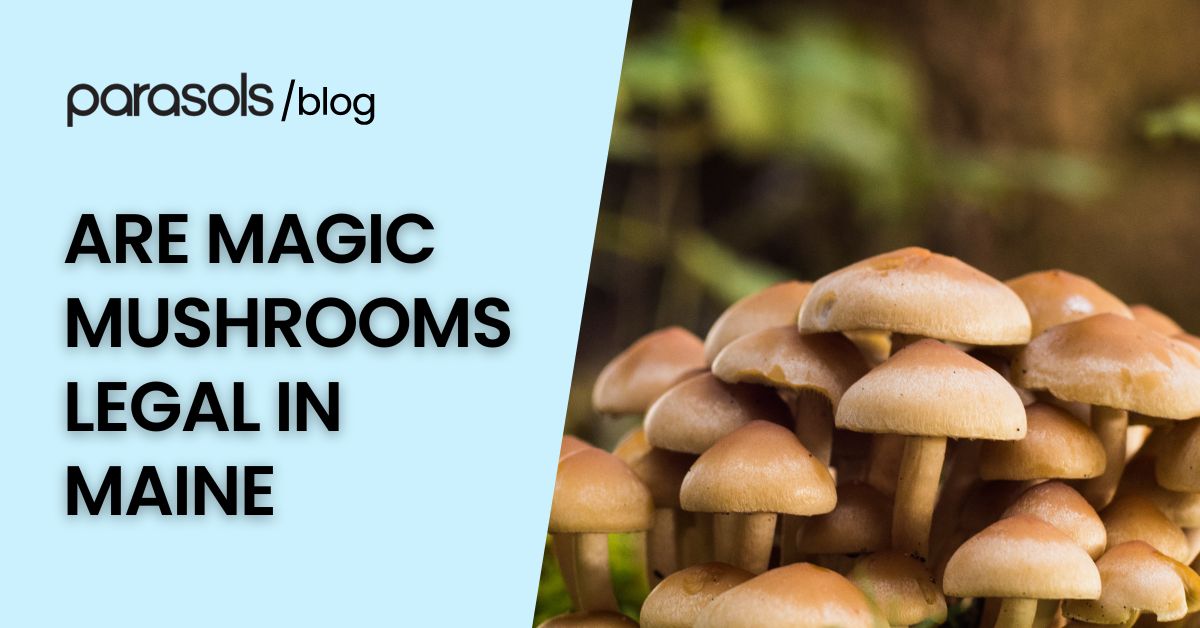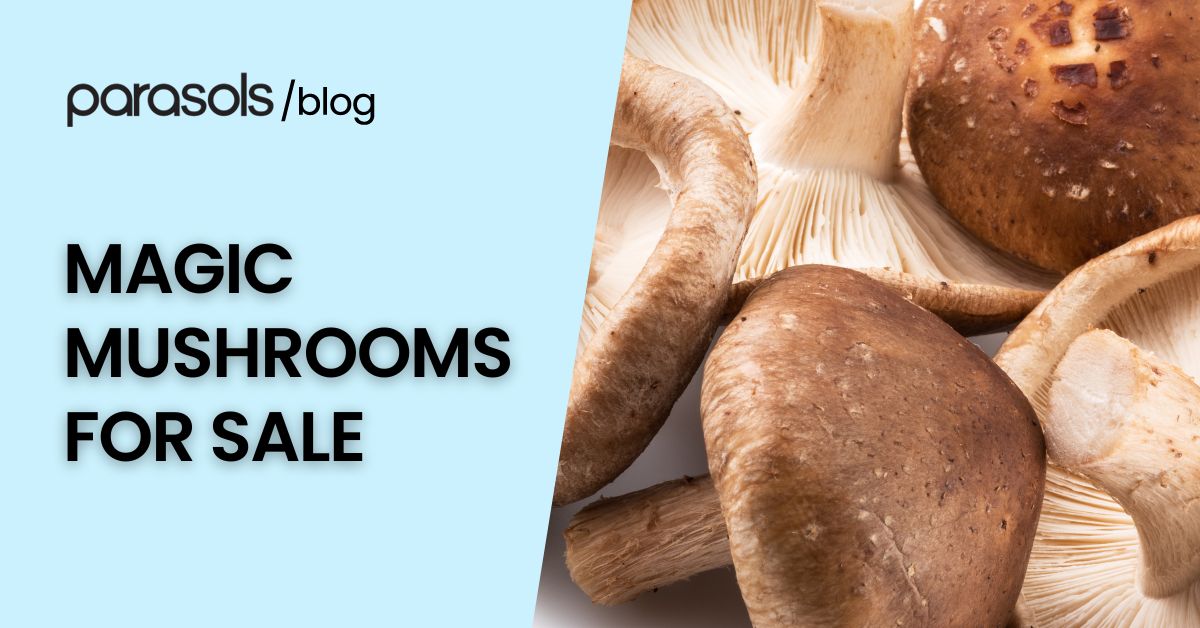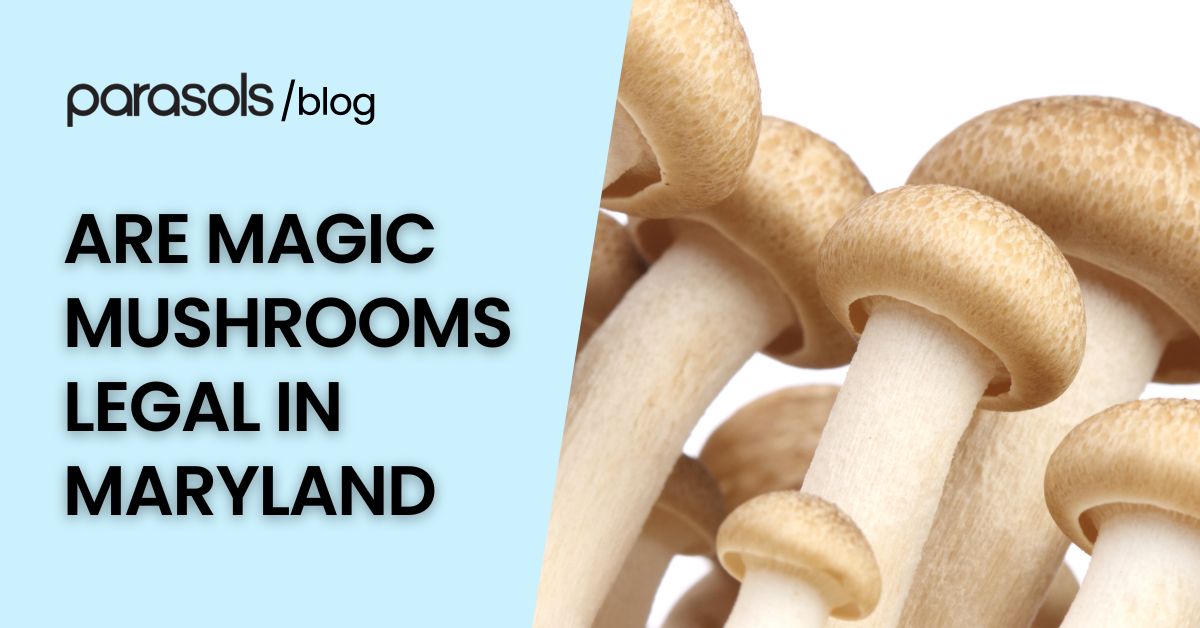Curiosity about psychedelic mushrooms is growing across the country, and Maine is no exception. With ongoing national conversations around mental health, addiction recovery, and criminal justice reform, many are asking: Are magic mushrooms legal in Maine?
While some states have taken steps toward legalization or decriminalization, Maine’s stance remains more cautious. Here are key reasons why psilocybin mushrooms are still not legal in the Pine Tree State.
Understanding Psilocybin Mushrooms
Psilocybin mushrooms, often referred to as magic mushrooms or psychedelic mushrooms, are naturally occurring fungi that contain the psychoactive compound psilocybin. When ingested, psilocybin can produce altered perceptions, emotional shifts, and profound introspective experiences.
While some studies suggest potential benefits for mental health and substance use disorder, psilocybin remains classified as a Schedule I substance under federal law, meaning it’s considered to have a high potential for abuse and no accepted medical use.
Are Magic Mushrooms Legal in Maine?
Magic mushrooms are currently illegal in Maine. Although there have been efforts in the Maine Legislature to change this, psilocybin remains classified as a Schedule I controlled substance under both state and federal law.
Possession, even in small amounts, is considered a criminal offense and may lead to jail time and fines. Recent proposals aimed at decriminalizing or legalizing psilocybin for personal use or therapeutic purposes have sparked debate, but none have successfully passed into law. As it stands, the use, sale, or possession of psilocybin mushrooms is still prohibited throughout the state.
Legalities Surrounding Magic Mushrooms in Maine

A growing awareness of psilocybin’s therapeutic potential has not yet resulted in full legal reform in Maine. While some lawmakers and advocates are pushing for change, psilocybin mushrooms remain illegal under both state and federal law. Oversight and enforcement in Maine are handled by a combination of state and federal agencies working to regulate controlled substances and public health.
State Classification and Scheduling
The Maine Department of Health and Human Services (DHHS), along with the Maine Drug Enforcement Agency (MDEA), classifies psilocybin and psilocin as Schedule I controlled substances—mirroring federal law under the U.S. Drug Enforcement Administration (DEA). This classification identifies them as having a high potential for abuse and no currently accepted medical use.
Possession, Cultivation, and Penalties
In Maine, possession of psilocybin mushrooms is considered illegal, regardless of the amount. There is no legal distinction between personal use and intent to distribute. Individuals caught with psilocybin may face criminal charges, which can include jail time, probation, and significant fines. Cultivating or manufacturing psilocybin mushrooms is treated as a felony offense, subject to harsher penalties.
Spores vs. Fruiting Bodies
While psilocybin mushroom spores may be available for educational or research purposes and do not contain the psychoactive compound psilocybin, cultivating them into fruiting bodies crosses the legal line. Once the mushrooms begin producing psilocybin, their possession or production is a criminal act under state and federal law.
Governing Authorities and Enforcement
The Maine Drug Enforcement Agency (MDEA) leads local enforcement efforts against controlled substances, working in coordination with the Maine Department of Public Safety. The Maine DHHS is responsible for overseeing drug classification and public health impacts, while federal oversight remains with the DEA under the Controlled Substances Act.
Historical Legislation and Proposals
Maine lawmakers have introduced bills in recent sessions aimed at decriminalizing or legalizing psilocybin for therapeutic use. Notably, proposals supported by members of the Maine House and Senate have called for creating a psilocybin services program modeled after Oregon’s. However, none of these measures have successfully passed both chambers or gained approval from the governor.
Medical, Therapeutic, and Research Exceptions
As of now, Maine does not offer any formal medical, therapeutic, or research exemptions for psilocybin use. While universities and advocacy groups continue to call for study pathways, the state has not authorized pilot programs or clinical use, leaving such work to federally approved research institutions operating under strict regulations.
Magic Mushroom Alternatives in ME
While psilocybin remains illegal in Maine, there are several legal options that offer similar therapeutic or introspective benefits.
- Ketamine-Assisted Therapy – A legal dissociative treatment used in clinical settings for depression, anxiety, and PTSD, offering altered states of consciousness with medical supervision.
- Psychedelic-Inspired Breathwork and Somatic Practices – Non-drug approaches like deep breathwork, movement, and trauma-release techniques that can mimic certain emotional and psychological effects of psychedelics.
- Microdosing Legal Botanicals and Nootropics – Substances like lion’s mane or other adaptogens that may improve mood and focus without inducing hallucinations or violating drug laws.
- Psychedelic-Informed Psychotherapy – Therapy sessions guided by practitioners trained in psychedelic principles, helping clients study trauma, identity, and healing without actual drug use.
- Participation in Clinical Research – Federally sanctioned trials sometimes allow qualified participants to legally access psilocybin or MDMA under strict medical and research protocols.
Future Expectations for Shrooms in ME

The future of psilocybin in Maine remains uncertain but increasingly active. While current laws still prohibit its use, a growing number of lawmakers, health advocates, and residents are pushing for reform.
Recent legislative proposals, including efforts to decriminalize small amounts for personal use and to study its therapeutic potential, signal a shift in public sentiment. With states like Oregon and Colorado setting precedents, Maine may eventually follow suit—especially as more research emerges linking psilocybin to treatment for depression, PTSD, and substance use disorder.
However, meaningful change will depend on continued legislative support, public education, and regulatory planning.
Final Thoughts
While Maine has yet to adapt the legalization or decriminalization of psilocybin, the conversation is far from over. With increasing public interest, legislative proposals, and research-driven support, the path forward may shift in the coming years.
Stay informed about ongoing legislative changes and evolving research on psilocybin in Maine to better understand how future developments may impact its legal status.
Frequently Asked Questions
1. What is the difference between psilocybin and psilocin?
Psilocybin is the compound found in magic mushrooms, which the body converts into psilocin—the chemical that causes psychedelic effects.
2. Can magic mushrooms be detected in drug tests?
Yes, specialized drug tests can detect psilocybin or psilocin, though they are not part of standard drug screening panels.
3. Are there any age restrictions in states where psilocybin is legal?
Yes, in states like Oregon and Colorado, legal use or decriminalization typically applies only to adults aged 21 and older.
4. Is it legal to grow psychedelic mushrooms at home in Maine?
No, home cultivation of psilocybin mushrooms in Maine is illegal and can result in serious criminal charges.
5. Can psilocybin mushrooms be prescribed by doctors in the U.S.?
Not at this time. Psilocybin is a Schedule I substance under federal law and cannot be prescribed outside of approved clinical trials.
6. Are there religious or spiritual exemptions for psilocybin use in Maine?
No, Maine does not currently offer religious or spiritual exemptions for the use of psilocybin or other entheogenic substances.
7. How long do the effects of magic mushrooms typically last?
Effects usually begin within 30 to 60 minutes after ingestion and last between 4 to 6 hours, depending on dose and individual response.
8. Can psilocybin cause negative mental health effects?
Yes, it can lead to anxiety, paranoia, or distress, especially in those with underlying mental health conditions or without proper guidance.



Leave a comment
This site is protected by hCaptcha and the hCaptcha Privacy Policy and Terms of Service apply.